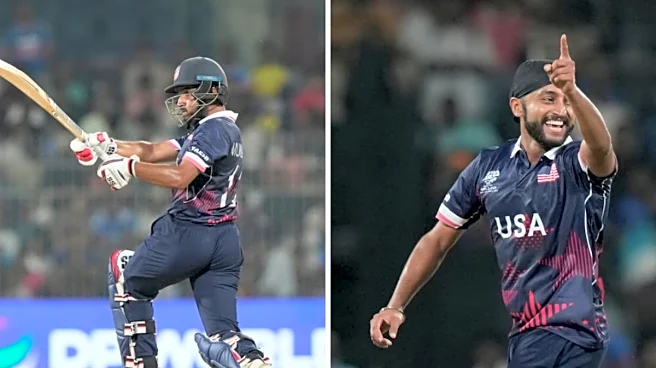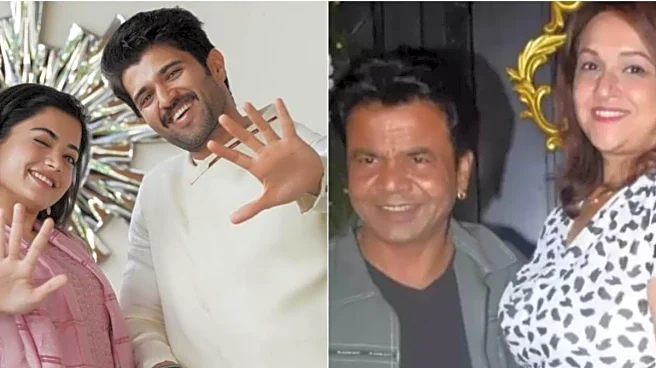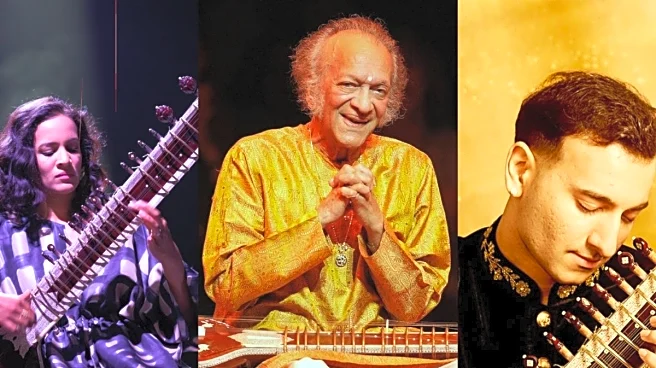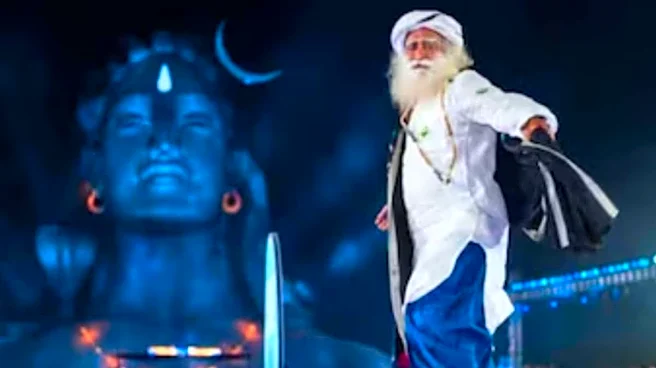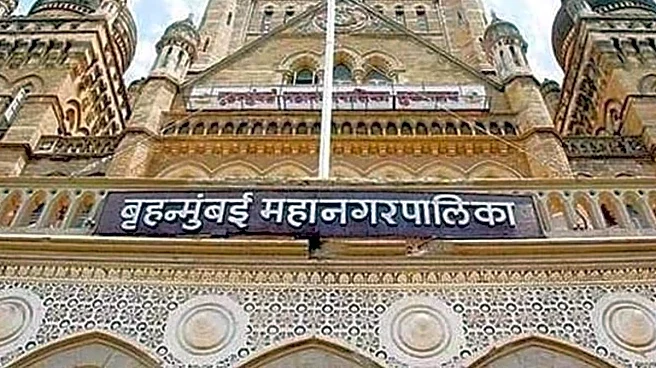India defeated Pakistan by five wickets on Sunday, September 28, to win the Asia Cup 2025 title. In the final played at Dubai International Cricket Stadium, India chased down the target of 147 runs in 19.4
overs for the loss of five wickets. Tilak Varma remained unbeaten on 68 runs from 53 balls, and Shivam Dube scored 33 runs from 22 balls. Earlier in the first half, Kuldeep Yadav picked up 4 wickets for 30 runs in four overs, and two Pakistani batters each were sent back to the pavilion by Jasprit Bumrah, Varun Chakaravarthy and Axar Patel.
As the winners of the Asia Cup 2025, India won the prize of 150,000 US dollars (Rs 1.33 crore INR appx), whereas Pakistan settled for 75,000 US dollars (Rs 66.50 lakh INR appx).
Kuldeep Yadav won the cheque of 15,000 US dollars (Rs 13.30 lakh INR appx) for being the Most Valuable Player (MVP) of the Asia Cup 2025, whereas Abhishek Sharma also pocketed 15,000 US dollars (Rs 13.30 lakh INR appx) for winning the Player of the Tournament award. He was also given an SUV from the Haval company.
For his 68-run knock, Tilak won the Player of the Match award and a cheque of 5000 US dollars (Rs 4.43 lakh IST appx).
In addition to the 150K US dollars prize money received from the Asian Cricket Council (ACC) for being the Asia Cup 2025 champions, Indian players and support staff were also awarded Rs 21 crore by the Board of Control for Cricket in India (BCCI).
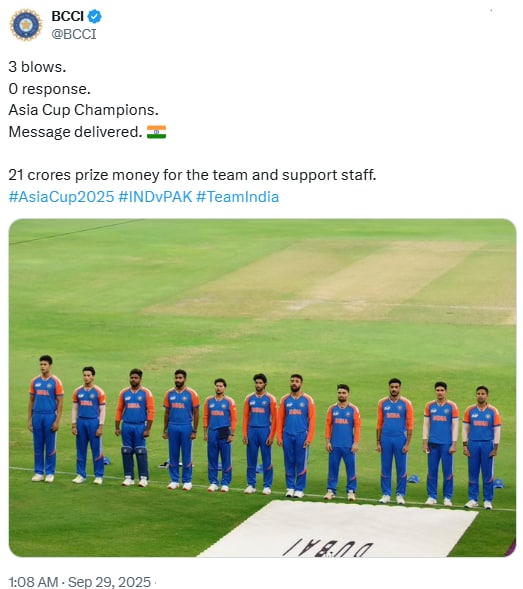
India refuse to accept trophy
After scripting history in the Asia Cup final, Team India has reportedly refused to accept the trophy from Asian Cricket Council (ACC) chairman, Mohsin Naqvi. While no official confirmation was issued, the unusual delay in the presentation ceremony sparked speculation and hinted at the brewing of another controversy.
According to PTI, the Indian contingent won’t accept the silverware from Naqvi, who also happens to be Pakistan’s interior minister.
As the head of the Asian Cricket Council, Naqvi was formally entitled to hand over the trophy and conduct the traditional post-match interactions with both teams. However, staying consistent with their pre-decided stance, the Indian players maintained a strict ‘no handshake, no off-field engagement’ policy with anyone representing Pakistan.
The team’s firm approach ensured that celebrations remained limited to their on-field achievement, underlining the frosty political undertones that continue to surround Indo-Pak cricket despite the electrifying contest on the field.
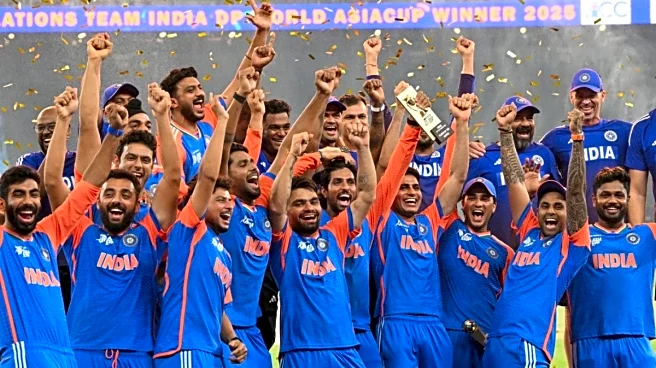

/images/ppid_a911dc6a-image-17710264327998831.webp)

/images/ppid_a911dc6a-image-177102646607765106.webp)



